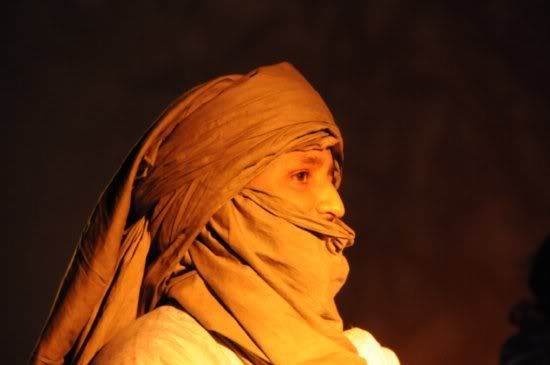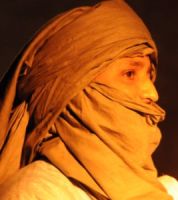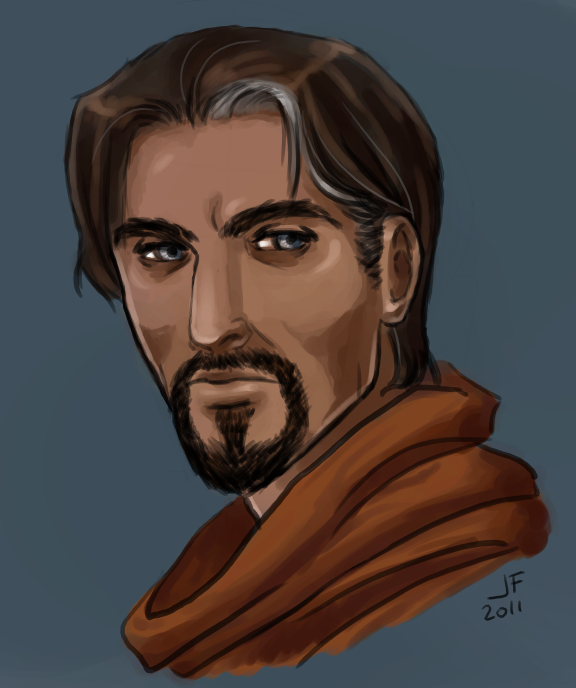  Apologies to my thread-partners: I am behind on everything. Thank you for your patience while I try to catch up with it all. To-do list: Flashbacks
Spring 511
Summer 511
Fall 511
Winter 511
Devious Future Plans
Various Bookkeeping
|
- Getting Started
- Help
- Master Lists
- Useful Links
- Features
[PC Plotnotes] Faroul
(This is a thread from Mizahar's fantasy role playing forums. Why don't you register today? This message is not shown when you are logged in. Come roleplay with us, it's fun!)This forum is an OOC forum for PCS and Organizations to work out plans in hardcopy. Each PC or Organization gets a single thread where their players can help work out plans for their PC. Quests, mini-sagas, and Trips can all be organized here as well working out timelines and points of travel and things PCs need to do along the way. Each PC however gets only one Plotnote for their individual PC. Groups get one as well. There is no limit on individuals posting saga or trip plotnote threads. Please denote [PC Plotnotes] or [Group Plotnotes] or [Quest/Trip/Saga Plotnotes] when titling your threads.
[PC Plotnotes] Faroul
![]() by Faroul on December 5th, 2011, 10:52 pm
by Faroul on December 5th, 2011, 10:52 pm
Last edited by Faroul on March 15th, 2012, 12:12 am, edited 10 times in total.
-

Faroul - Condemned
- Posts: 117
- Words: 52454
- Joined roleplay: July 25th, 2010, 10:55 pm
- Location: Ahnatep
- Race: Human, Benshira
- Character sheet
- Plotnotes
- Medals: 1
-

[PC Plotnotes] Faroul
![]() by Faroul on December 5th, 2011, 11:00 pm
by Faroul on December 5th, 2011, 11:00 pm
Character Timeline
|
-

Faroul - Condemned
- Posts: 117
- Words: 52454
- Joined roleplay: July 25th, 2010, 10:55 pm
- Location: Ahnatep
- Race: Human, Benshira
- Character sheet
- Plotnotes
- Medals: 1
-

[PC Plotnotes] Faroul
![]() by Faroul on December 15th, 2011, 11:50 pm
by Faroul on December 15th, 2011, 11:50 pm
Character Goals and Traits  Faroul, circa 498 AV (30 years old) [Character Goals] Primary Goal: Survival Simply put, Faroul's personal goal is to survive. His greatest wish is to keep living - to secure the minimum amount of resources and safety needed to sustain the functioning of his body. His idea of survival is primarily short-term (securing food now or eliminating threats immediately at hand), but he also understands and desires long-term survival, which entails accumulating a surplus of resources and establishing a secure place in a social order. However, given Mizahar's dangers and Faroul's own situation, simply surviving is a tall order. Both Hai and Ahnatep are perilous places, always poised to devour the weak, disadvantaged, and unlucky. To survive there requires he overcome the following conflicts:
Secondary Goal: Revenge Though matters of survival take precedence, Faroul pursues a second goal when he is able: revenge. He believes the House of the West Winds acted unforgiveably in the past, wrongfully dooming him and mortally endangering the queen he served. He'd love nothing more than to deal them even a portion of the ruin and agony he knew in Hai, and to punish a normally untouchable institution for its injustices. This goal both furthers and hinders his primary goal of survival. In seeking revenge, he must establish himself in Ahnatep and cultivate relationships with powerful patrons (like Rak'kena and Izdihar), which offers him greater access to the financial and social resources he needs to live. On the other hand, it comes at the expense of greater visibility among dangerous people and an increased likelihood of violence against his person. He assumes the emotional satisfaction of retribution and the attendant closure will make it worth the risks. Tertiary Goal: Peace Beyond surviving and exacting revenge, Faroul also desires peace. Safety, tranquility, rest, emotional well-being, freedom of movement and agency, and freedom from pain, grief, violence, and control are all aspects of his conception of peace. However, he feels it is impossible to attain, and that suffering and oppression are inescapable facts of existence. As such, it is a wish he hardly ever examines or articulates, despite its omnipresence in his mind. His unconscious perception is that fulfilling his first two goals will at least lessen his pain, if not eradicate it. It remains to be seen if seeking revenge and exacerbating his negative traits in pursuit of it will actually preclude him from this goal of peace entirely. [Character Diamond] Constant Traits Analytical (+): Faroul is highly analytical by nature. He is prone to thinking and examination, often breaking situations or ideas apart in order to understand them more completely. This process of dissection has helped him immensely in assessing risk and problem-solving, which in turn made it possible for him to survive in one of Mizahar's most bleak and dangerous places: the prison city of Hai. Though he now walks in Ahnatep, his keen mind and insight are his best chances for blending into society and securing both his continued survival and his revenge. Psychologically, this aspect of his personality is also key to managing his emotions and trauma, though contemplating the ugly sides of society and the world has embittered him greatly. Traumatized (-): One loose definition of trauma is "a disordered psychic or behavioral state resulting from mental or emotional stress or physical injury." I am therefore using "traumatized" as a catch-all category for everything Faroul does or experiences as a result of psychological damage. These symptoms are all-encompassing, touching every part of his life, but they share a common source - his time in Hai - and make the character diamond too complicated if they aren't grouped together. Contained in this category are Faroul's paranoia, hypervigilance, fear and panic, exaggerated startle response, anger and rage, bitterness, cynicism and disillusionment, compassion fatigue, coldness, detachment, exhaustion, instrusive flashbacks, and sleep disturbances. In short, he exhibits symptoms from all three categories of PTSD effects. He basically perceives himself as constantly under siege by the world, and reacts to his surroundings and others accordingly. Though he is no longer in Hai, his mind and instincts still tell him that he is; in many ways, he carries the pit within him. In addition, Faroul's mind has three distinct modes, two of which were born from his life in Hai. They aren't separate personalities, but rather a group of bodily and mental changes that he has personified in order to better deal with them. His basic state is his analytic, thinking mode, the part of his mind that functions when he is untouched by trauma or distress. However, when he encounters certain triggers - threat displays from others, intimations of danger, or the risk of bodily harm - "the jackal" takes over. This mode is comprised of Faroul's self-preservation instincts, including his adrenal and fight or flight responses, muscle memory, and habituation to violence. Entering his jackal brain is directly responsible for his survival on countless occasions, but if it is triggered and flares up at an inappropriate time, it may well lead him to commit extreme acts disproportionate to the actual risk or threat he faces. In contrast to jackal mode, "the fits" or "the flood" is the part of Faroul's mind that contains all of his emotional disturbances. Irrational fears, nightmares, unwanted flashbacks, sudden anger, nausea, and shaking are all parts of his fits. This mode is the product of his trauma, and the cost incurred by entering jackal mode, witnessing or enduring suffering, and committing violence. The more Faroul enters life or death situations, the more this mode is fed, and the more frequently it overwhelms him. It is also triggered not just by the aforementioned stimuli, but by anything that recalls negative experiences of his past as well. (Living in Ahnatep is very dangerous for him for this reason.) Therefore his life in the "lit world" revolves around managing this trauma and the recurrence of this mode, and working to accomplish his goals before it finally overcomes him completely. Situational Traits Idealistic (+): Given Faroul's negative qualities, this seems like an odd trait for him to have, but it is actually crucial for understanding his past, his current predicament, and his goals. By "idealism," I don't mean that Faroul is a naive crusader for happiness, freedom, truth, justice, or any of the other traditional hallmarks of goodness. On the contrary: he doesn't believe these ideals are actually attainable or present in the world, and he often acts contrarily to them, violating them frequently and in awful ways. However, he still believes in them strongly and desires them regardless. He wishes profoundly that hope, beauty, peace, and love were part of his life and others' lives, and feels that people should not have to suffer in places like Hai or the Pillars of Dust. He considers himself - and everyone in the world - to be victims of nature, circumstance, and society. Likewise, the gods are not sources of goodness, but rather entities always at war with each other who only regard humans as tools in their divine conflicts. As such, Faroul feels fundamentally alienated from all the things that matter to his heart, and due to his traumas and warped perception of danger, he cannot conceive of making these ideals real through his own behavior. As a side-effect of both his idealistic and ruthless traits, he does not feel ashamed for any of the choices he has made in life. While he regrets having to commit violent acts and harm others, he acknowledges that he had no other options, and has lived his life making the best decisions possible given his circumstances. This applies both to his choice to help his queen escape death in Ahnatep, and his resolution in Hai to live as long as possible. Ruthless (-): The definition of ruthless is "without pity or compassion; cruel; merciless." However, to me, it also implies that someone is willing to use whatever means necessary to accomplish a goal, regardless of the human cost. This amended definition fits Faroul perfectly. While he is not naturally violent, and does not seek to harm others out of personal enjoyment, he has nonetheless sworn to do whatever it takes to live. And this does mean whatever it takes - murder, brutality, and outright lying included. Nothing is sacred, no one immune, if they prove a threat and stand between him and survival. Paired with his analytical trait, it makes him incredibly dangerous; Faroul can logically pick apart a problem, decide on a course of action, and carry it out with a cold exactitude unfettered by moral quandaries. Of course, this has its cost (see flood mode above), but it is how Hai has taught him to live. He will always choose a course of action that maximizes his personal gain, mitigates the most risk to himself, and resolves the issue as finally as possible. Sometimes violence is the tool that accomplishes that best. [Misc. Character Resources] Relevant Tropes:
Perspectives on Violence, Conflict, and Criminal Psychology: A must-read for anyone writing a character engaging in violence. |
-

Faroul - Condemned
- Posts: 117
- Words: 52454
- Joined roleplay: July 25th, 2010, 10:55 pm
- Location: Ahnatep
- Race: Human, Benshira
- Character sheet
- Plotnotes
- Medals: 1
-

3 posts • Page 1 of 1
Who is online
Users browsing this forum: No registered users and 0 guests